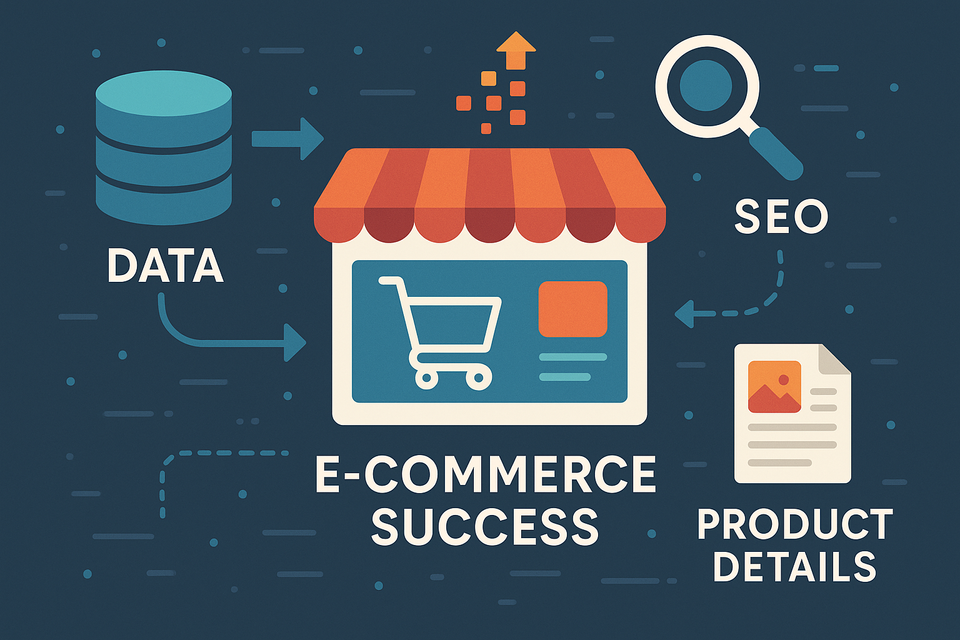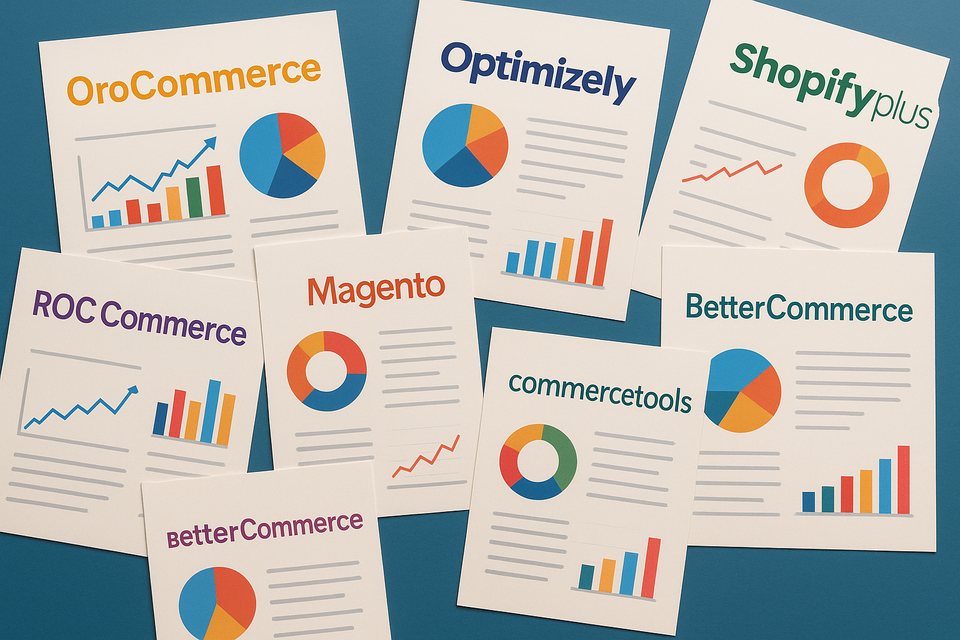Building Your Online Business - Choosing the Right Partner!
Implementing an e-commerce solution takes a team, if you don't have it you'll most likely have to hire a third-party agency for assistance. This post goes into things to consider when choosing an implementation partner.

Choosing an e-commerce solution is only the first step on your journey toward establishing a digital commerce presence. While it is arguably the most important decision, it will likely seem the simplest by the time you reach the end of the process. The real work begins when you start the implementation phase.
Although some vendors assist with implementation, many delegate this responsibility to third-party entities, typically referred to as agencies or system integrators.
What Do I Need With a Third-Party?
While some businesses may have the technical expertise to deploy an e-commerce solution internally, most do not. Agencies bring specialized knowledge not only in implementing e-commerce platforms but also in integrating third-party extensions you may be considering. Most importantly, agencies can help ensure seamless integration with your existing ecosystem.
E-commerce Integrations Options
There are many solutions available, but my focus has been on providers with expertise in the specific ERP my customer uses as their system of record: Epicor Prophet 21.

Silk Commerce is widely regarded as the go-to provider for Epicor Prophet 21 integrations, thanks to their longstanding partnership with Epicor and involvement in Epicor’s own e-commerce solution. Silk Commerce are not only skilled integration specialists for Prophet 21 and other ERP systems, but also experienced in e-commerce solution discovery, design, and implementation-making them a one-stop shop for many businesses.
Silk Commerce leverages their own middleware solution, ShopHive, for most integrations, but they also have experience working with third-party solutions and can assist with both project management and integration. Silk Commerce is based in the US, though some functions are offshored.

Klizer is a separate business entity that evolved from DCKAP’s professional services, focusing on e-commerce design and implementation. DCKAP itself uses its proprietary DCKAP Integrator for API communications between ERPs and e-commerce platforms.
DCKAP and Klizer often partner to provide comprehensive implementation and integration solutions for e-commerce deployments. This separation of duties results in unique contracts and integration teams for each party, which can be a bit more involved, but their strong working relationship helps ensure smooth collaboration.
Both companies are based in India but are willing to accommodate US meeting schedules. As an aside, at the time of writing, DCKAP is working to strengthen its relationship with Epicor and is seeking certified partnership status.

Yoma Digital is another expert in Prophet 21 integrations. Based in the UK, Yoma offers full-service solutions for discovery, design, implementation, and integration. They have experience with several leading e-commerce platforms for small to medium-sized businesses, including Magento, Shopify, Epicor Commerce (EC), and BigCommerce.
Evaluating Your Choices
When evaluating your implementation provider, there are several key areas you should assess:
Knowledge of Your Ecosystem
Are they familiar with your existing tools and software? Do they have experience integrating APIs for your chosen components? This familiarity will reduce implementation complexity, time, and costs.
Experience with Your E-commerce Provider
It’s essential to ensure the provider has experience implementing your chosen e-commerce solution. Ask for references, follow up with them, and discuss their experience and response times. Your e-commerce provider and implementation agency may already have an existing relationship, which could lead to potential cost savings that aren’t immediately apparent-never hesitate to ask about discounts or incentives.
Ability to Assist with Third-Party Integrations
Your ecosystem will likely include several important components, but you’ll probably also consider third-party solutions such as shipping options, tax calculation, payment gateways, and fraud prevention solutions. When evaluating these services, seek input from your implementation provider-they may suggest vendors you haven’t considered and could help you secure savings through established partnerships.
Project and Resource Management
How does the provider approach projects? What project management methodology will they use? Which resources will be available, and what will they require from your team? Will you need to attend daily meetings, or act as a liaison between stakeholders? Consider the provider’s location, their service-level agreements (SLAs), and their expected response times for any issues that might arise.
Costs
Most importantly, what are the costs? After the project is complete, do they offer a support contract or ongoing retention services? Is part of the solutions hosted, what do the ongoing costs look like?
Conclusion
Selecting the right e-commerce solution is just the beginning of your digital transformation journey. The true challenge-and opportunity-lies in the successful implementation and integration of your chosen platform within your unique business ecosystem.
By carefully evaluating potential implementation partners on their technical expertise, experience with your e-commerce provider, ability to manage third-party integrations, project management approach, and cost structure, you set the stage for a smoother rollout and a more robust, future-proof solution.
Whether you partner with specialists like Silk Commerce, DCKAP/Klizer, or Yoma Digital, investing time in due diligence will help ensure your e-commerce presence is not only launched successfully but is also positioned for long-term growth and adaptability. Remember, the right partner can make all the difference between a challenging project and a seamless digital commerce experience.


